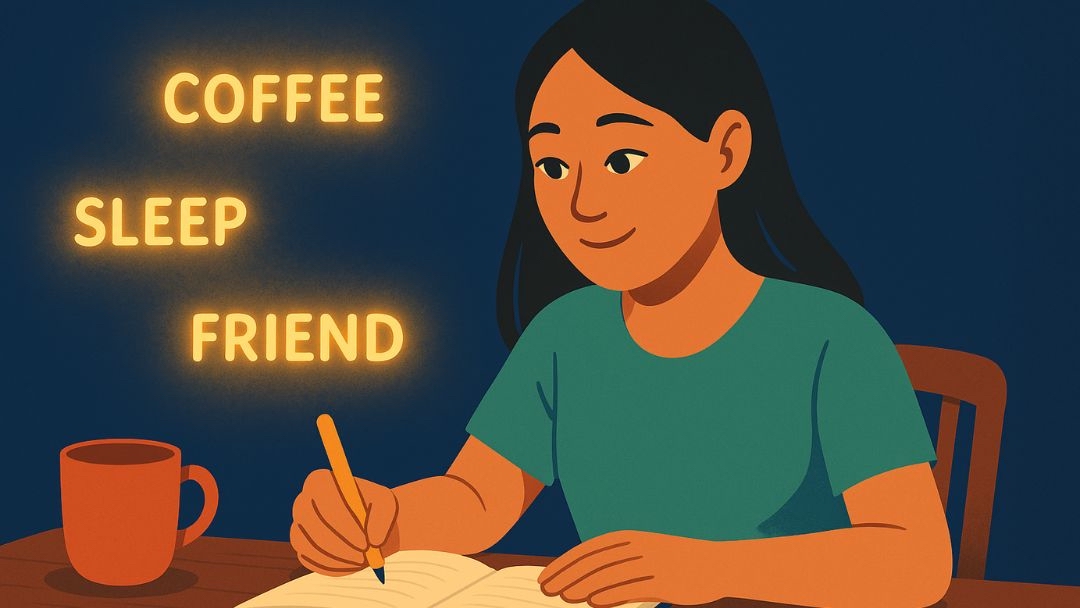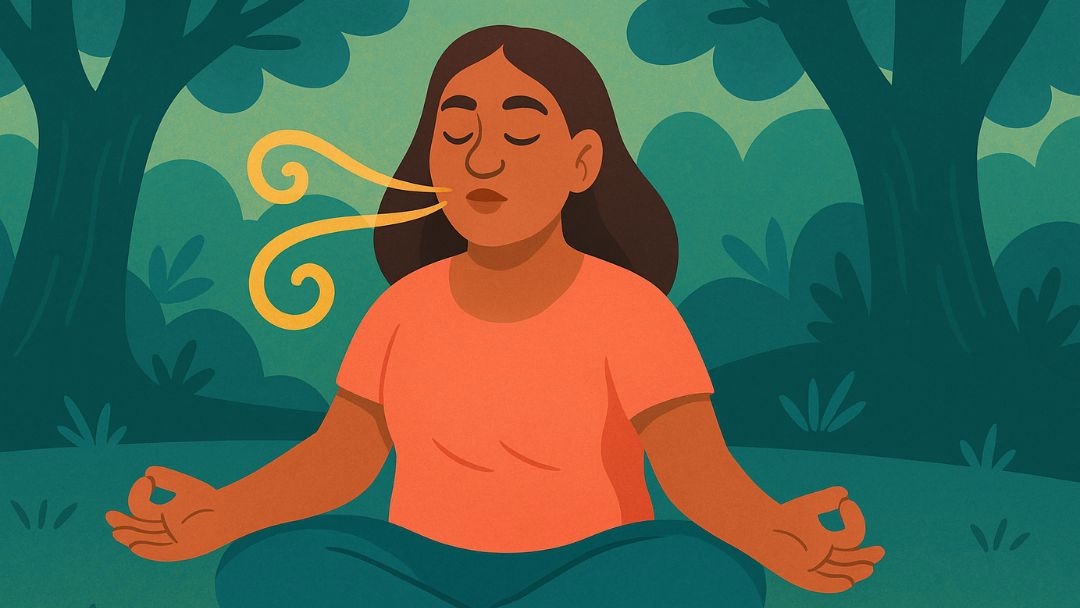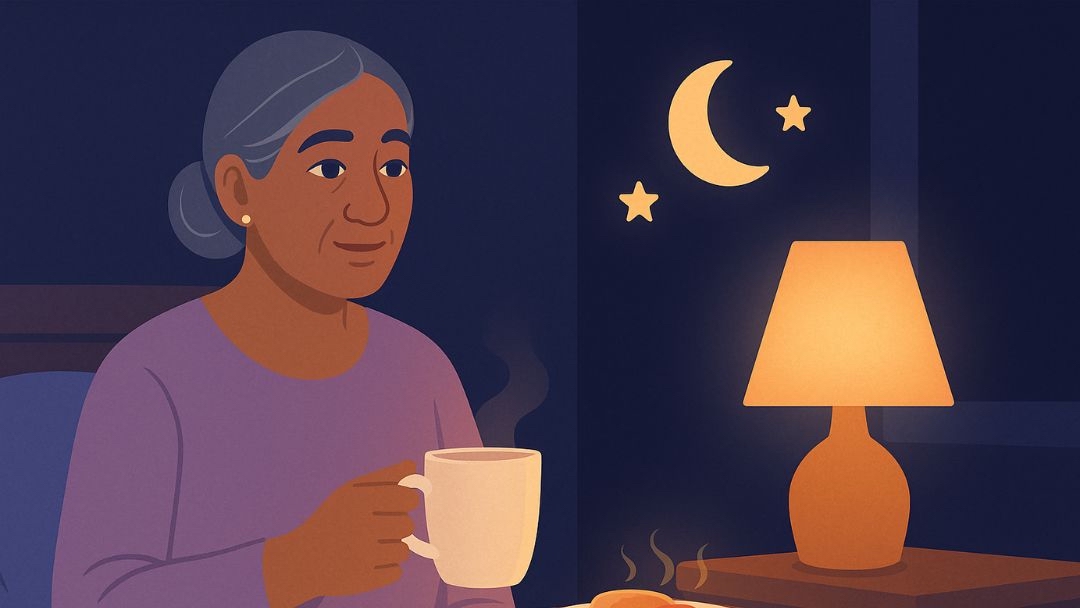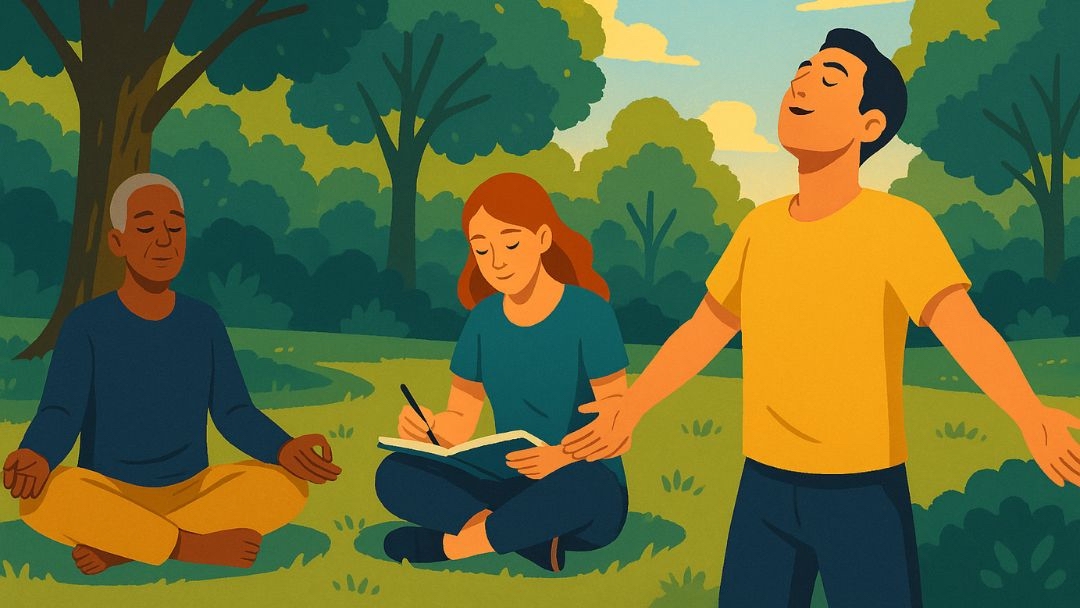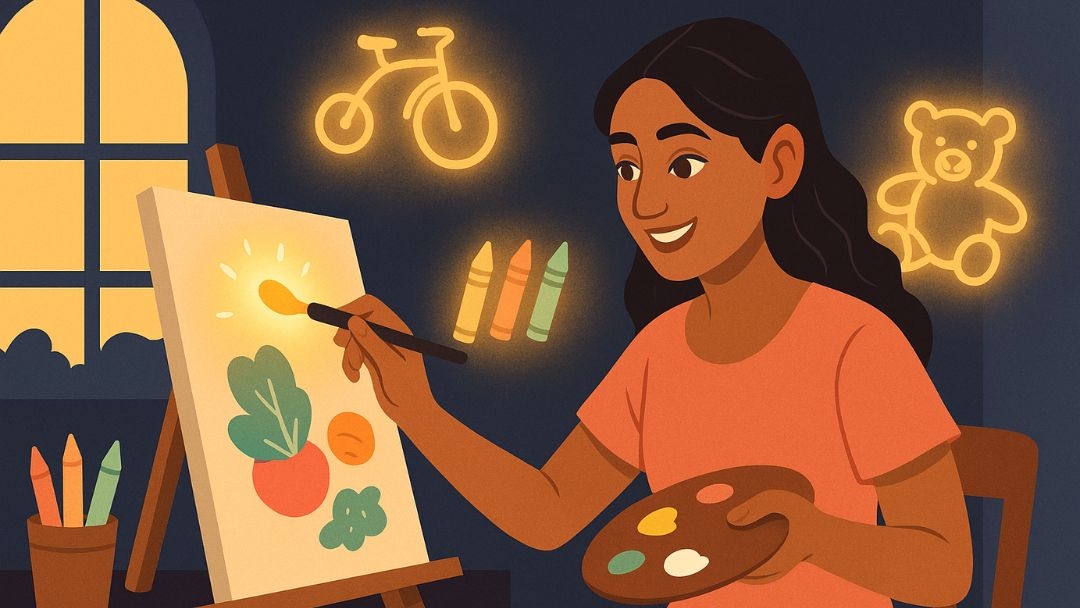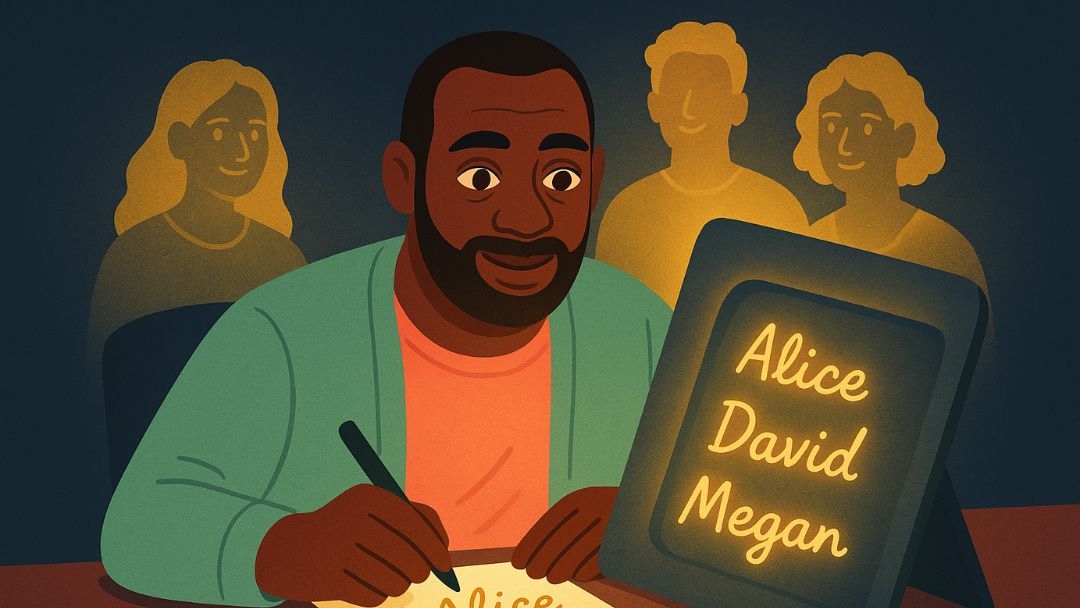30 Days of Mental Wellness: Protect Your Mental Health with Simple Daily Actions
Our mental health is shaped every day by the choices we make, from how we start our mornings to how we handle stress. But how often do we make those choices consciously with our well-being in mind? Our 30-Day Mental Health Challenge offers simple, science-backed actions to help you build steady momentum toward a calmer and stronger mind.


Back
12 mins read
I’ve always known mental health is something worth paying serious attention to, but even I was taken aback when I saw the latest statistics for mental illnesses in the United States. More than one in five U.S. adults struggles with a mental illness. The rates are highest among young adults between 18 and 25.
And here’s the part that really struck me: nearly half of those who need help don’t get any treatment at all.
That means millions of people are left trying to cope on their own. While professional help is essential, especially for those with serious mental illnesses, there’s also so much we can do in our daily lives to protect and strengthen our mental health.
That’s where our 30-Day Mental Health Challenge comes in.
In honor of Mental Health Awareness Week, Depression Awareness Month, and ADHD Awareness Month, all of which occur in October, I’ve compiled 30 simple and practical actions to enhance our mental well-being.
These aren’t drastic lifestyle overhauls; they’re small steps you can weave into your daily routine to give your mind the same kind of care you’d give your body.
30 Simple Daily Actions to Preserve Your Mental Health
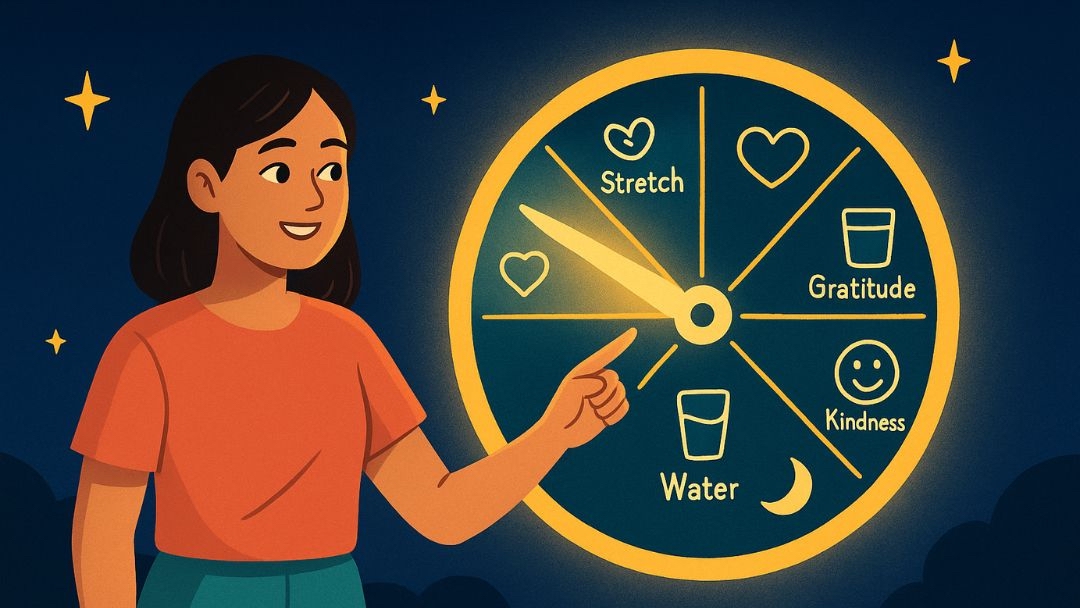
If the mental health statistics reveal anything, it’s that no one is immune to mental health challenges, and leaving it to chance isn’t an option. We understand big changes can feel overwhelming, so our challenge focuses on small, doable steps. When actions are simple, you’re more likely to start and stick with them.
We hope that by the end of these 30 days, you’ll have found habits that not only boost your mental health now but also prepare you for tougher seasons ahead. And with the holidays approaching, a time when the winter blues, seasonal affective disorder, and holiday depression often rise, these little practices could make a big difference in preserving your mental and emotional well-being.
Here are 30 simple actions to protect your mental health.
Day 1 – Brighten Your Plate with One Colorful Vegetable Today
Healthy eating feels like the right place to start this challenge because “we are what we eat.” I’ve noticed that when I slip a little color into my meals, like tomatoes in my sandwich or spinach in my eggs, I feel better about what I’m eating. In honor of World Vegetarian Day, try adding one colorful vegetable to your plate today. It’s a tiny change, but your body and mind will thank you.
Why Vegetables Are Good for Mental Health
Vegetables are packed with vitamins, minerals, and antioxidants that support brain health and mood regulation. Higher intake of fruits and vegetables is linked to increased happiness, lower stress, better overall well-being, and a reduced risk of depression.
Day 2 – Say a Kind Word to a Stranger on Your Way to Work
I still remember how much it brightened my day when a random stranger once complimented me with kind words. Since then, I’ve tried to reciprocate whenever I could. Today, try offering a kind word to someone you encounter, such as a stranger on your commute, a shop attendant, or even your bus driver. It costs nothing and takes seconds, but your kindness lingers in their memory for hours.
Why Kindness Is Good for Mental Health
Acts of kindness trigger the release of feel-good hormones like serotonin and oxytocin, which reduce stress and boost mood. Kindness reduces symptoms of depression and anxiety and increases feelings of connection.
Day 3 – Name 3 Simple Things You’re Grateful for Right Now
When life gets busy, it’s easy to overlook the small things that make our days lighter. I’ve found that naming simple things I’m grateful for, like a good night’s sleep or my morning coffee, shifts my whole mood. Take a minute today to list three little things you’re thankful for.
Why Gratitude Is Good for Mental Health
Practicing gratitude is linked to improved happiness, lower stress, and stronger resilience during tough times. Gratitude helps regulate emotions, increases self-esteem and life satisfaction, and reduces the risk of depression.
Day 4 – Take the Stairs or Do 10 Minutes of Light Stretching This Morning
A short burst of movement in the morning can set the tone for your day. It doesn’t have to be a full workout. Try taking the stairs instead of the elevator or doing 10 minutes of light stretching before you start working.
Why Physical Fitness Is Good for Mental Health
Physical activity boosts endorphins, the brain’s natural feel-good chemicals, and improves blood flow to the brain. Regular exercise reduces anxiety, eases symptoms of depression, and sharpens focus.
Day 5 – Call or Text a Friend or Family Member Just to Check In
Reach out to a friend or family member today, not because you need anything, but to let them know you’re thinking of them. Those little check-ins mean more than we realize.
Why Healthy Relationships Are Good for Mental Health
Strong social connections are one of the biggest protectors against stress, depression, and anxiety. People in supportive relationships report higher happiness levels, better coping skills, and better quality of life.
Day 6 – Set Time Limits for Distracting Apps on Your Phone
Sometimes I go online to check one thing, and before I know it, I get carried away and lose a few hours to scrolling. To prevent this, use your phone’s settings to limit time on distracting apps.
Why Setting Digital Boundaries Is Good for Mental Health
Excessive screen time increases stress and anxiety and disrupts sleep. Set boundaries to reduce overstimulation and give your brain a chance to reset. Limiting social media use improves focus, boosts mood, and decreases the risk of depression.
Day 7 – Practice 10 Minutes of Deep Breathing Exercises
When stress sneaks in, simple exercises like slowing down your breath can work wonders. Set aside 10 minutes today to focus on deep, steady breathing. Inhale slowly and exhale fully, allowing your body to relax with each breath.
Why Deep Breathing Is Good for Mental Health
Deep breathing lowers cortisol, slows the heart rate, and signals the brain to relax. It also reduces anxiety, improves focus, and helps regulate emotions.
Day 8 – Write One Negative Thought on Paper, Then Tear or Throw It Away
Sometimes negative thoughts loop endlessly in my head. One trick I use is writing them down and then physically tearing up the paper. It’s a symbolic but surprisingly freeing way of letting go of negative thoughts. Try it today with one thought that’s weighing you down.
Why Eliminating Negative Thoughts Is Good for Mental Health
Holding on to negative thinking patterns fuels stress, anxiety, and depression. Writing them down externalizes the thought, reducing its emotional power. Tearing the paper reinforces the act of release, improving emotional regulation and reducing rumination.
Day 9 – Spend 10 Minutes Outdoors and Notice What You See, Hear, and Feel
Spend 10 minutes outdoors today and really tune in. Notice the colors around you, the sounds in the air, and the feel of the breeze or sun on your skin. It’s a simple reset button for the mind.
Why Spending Time in Nature Is Good for Mental Health
Being in nature reduces stress hormones, lowers blood pressure, and improves mood. Spending time outdoors can boost happiness, restore focus, and reduce symptoms of anxiety and depression.
Day 10 – Take 5 Quiet Minutes to Check in on Your Mental Health Today
Today is World Mental Health Day, and it’s the perfect chance to reflect. Take five quiet minutes to sit with your thoughts and evaluate how you’re feeling lately. Pay attention to patterns that might indicate signs of depression or ADHD (yes, undiagnosed adults experience ADHD too). You might even take a quick depression test for clarity.
Why Mental Health Screening Is Good for Mental Well-being
Self-check-ins build emotional awareness and help you recognize early warning signs of mental health conditions. People who undergo routine checkups are better equipped to manage their emotions, seek help when needed, and maintain long-term resilience.
Day 11 – Encourage a Girl or Young Woman in Your Life with Words of Support
In honor of International Day of the Girl Child, reach out to a girl or young woman in your life and offer encouragement about her studies, dreams, or simply who she is.
Why Offering Support or Encouragement Is Good for Mental Health
Supportive words strengthen confidence and resilience, which are protective factors for mental health. Encouragement fosters a sense of belonging, reduces stress, and boosts self-esteem for both the giver and the receiver.
Day 12 – Challenge Yourself to Focus Only on Positives for 60 Minutes
For one hour today, train your mind to focus only on positives. Notice the good in your surroundings, in people, and even in yourself.
Why Having a Positive Mindset Is Good for Mental Health
Positive thinking is linked to lower stress, stronger immunity, and greater resilience. Regularly focusing on the positive helps rewire the brain, preventing negative thought patterns and improving overall life satisfaction.
Day 13 – Create a Relaxing Bedtime Routine
Whenever I dim the lights and do away with my phone thirty minutes before bedtime, I sleep soundly and peacefully. Tonight, try building your own bedtime ritual that signals to your brain that it’s time to rest.
Why Quality Sleep Is Good for Mental Health
Poor sleep is strongly linked to anxiety, depression, and reduced cognitive performance. A consistent bedtime routine enhances sleep quality, which in turn boosts mood, focus, and stress resilience.
Day 14 – Drink a Full Glass of Water First Thing in the Morning
Start your day with a full glass of water. It’s quick, refreshing, and helps you feel energetic as you carry out the day’s tasks.
Why Hydration Is Good for Mental Health
Dehydration can affect mood, memory, and focus. Mild dehydration is linked to increased anxiety, fatigue, and reduced alertness. Drinking water regularly supports better energy levels and a clearer mind.
Day 15 – Say One Kind, Encouraging Thing to Yourself in the Mirror
I know it can feel a little awkward, but looking in the mirror and saying something kind to yourself can change the way you start your day. Sometimes we just need to hear encouragement, even if it’s from ourselves. Positive self-talk is a proven way to help chase away the winter blues, so practicing now will give you a leg up.
Why Positive Self-Talk Is Good for Mental Health
Self-talk directly shapes self-esteem and stress levels. Encouraging inner dialogue boosts confidence, helps regulate emotions, and reduces negative thought cycles that feed anxiety and depression.
Day 16 – Try a New, Nourishing Food You Haven’t Eaten Before
Be adventurous with your plate today. Try a new fruit, grain, or healthy recipe you’ve never had before. In honor of World Food Day, remember that not everyone has access to healthy food. So as you explore something new, take a moment to appreciate the privilege of having nourishing choices on your plate.
Why Food Variety Is Good for Mental Health
Trying new foods can release dopamine, which boosts happiness and promotes positive emotions. Eating diverse, nutrient-rich diets can lower rates of depression and improve overall mood.
Day 17 – List One Positive Thing You Achieved Today, No Matter How Small
Big wins are great, but small ones count too. Write down just one positive thing you did today, whether it’s finishing a task or simply getting out of bed on time, and take a moment to celebrate it.
Why Celebrating Small Wins Is Good for Mental Health
Acknowledging small achievements activates the brain’s reward system, boosting motivation, mood, and positive emotions. Over time, this practice strengthens resilience and helps combat negative self-talk.
Day 18 – Make Your Bed or Declutter Your Work Desk
A tidy space can make a surprising difference in how the day feels. When you straighten your bed or clear a few things from your desk, you experience a little burst of order that brings a sense of calm.
Why Organizing Is Good for Mental Health
Clutter is linked to higher stress, anxiety, and difficulty focusing. Creating order in your environment supports clearer thinking, lowers overwhelm, and fosters a greater sense of control.
Day 19 – Commit Your Time or Resources to a Cause That Promotes Well-being
Charity doesn’t have to be elaborate to make an impact. It could be as simple as volunteering an hour, donating to a cause, or offering your skills to help someone in need. Knowing you’ve made a difference is its own kind of therapy.
Why Charity and Volunteering Are Good for Mental Health
Volunteering is strongly tied to happiness and well-being. It reduces stress, increases social connection, and lowers the risk of depression, especially when done regularly.
Day 20 – Spend Time with a Pet or Watch Funny Animal Videos
If you have a pet or your friend has one, carve out a little extra time today to play, cuddle, or sit with them. If you don’t have a pet, a few minutes of funny animal clips can lift your spirits instantly. Sometimes, joy really is that simple.
Why Connection with Pets Is Good for Mental Health
Interacting with animals can lower stress hormones, reduce loneliness, and boost your mood. Pet owners often report higher levels of happiness, but even brief moments of animal-related joy can ease anxiety and improve mood.
Day 21 – Journal Your Thoughts and Feelings for 10 Minutes
Grab a notebook and let your thoughts spill onto the page. Just write freely without worrying about grammar or neat handwriting. Ten minutes of journaling can take the weight off your shoulders.
Why Journaling Is Good for Mental Health
Journaling helps release bottled-up emotions, reduce stress, and gain clarity. Expressive writing can help lower anxiety and depression symptoms, improve self-awareness, and facilitate better sleep.
Day 22 – Watch a 2-Minute Funny Clip or Scroll Memes Guilt-Free
Laughter is medicine, and you’re allowed to take your dose guilt-free. Give yourself permission to watch funny videos or scroll through silly memes today without overthinking. I’ve found it to be an incredible mood-booster.
Why Laughter Is Good for Mental Health
Laughter reduces stress hormones like cortisol, boosts endorphins, and relaxes muscle tension. It also elevates mood and protects against stress-related mental health struggles.
Day 23 – Practice Saying “No” Once Today Without Guilt
Saying yes comes easily to most of us, but it sometimes comes at the expense of our comfort and well-being. Try saying “no” at least once today. Do it politely but firmly. Protecting your time and energy is a form of self-care.
Why Setting Boundaries Is Good for Mental Health
Healthy boundaries prevent burnout, reduce resentment, and protect emotional well-being. People who assert boundaries often experience lower stress and higher life satisfaction.
Day 24 – Do One Action That Promotes Peace—Listen, Forgive, or Show Empathy
In honor of United Nations Day, focus on promoting peace and unity in your own little corner of the world. You can try being an active listener, forgiving a minor hurt, or offering empathy to someone who is struggling.
Why Peace & Compassion Are Good for Mental Health
Practicing compassion reduces stress, boosts positive emotions, and strengthens social bonds. Choosing peace, internally and externally, supports both emotional resilience and long-term mental health.
Day 25 – Meditate for 10 Minutes (Use a Guided App If You Need Support)
Whenever I feel restless or anxious, I meditate to release the tension. Take 10 quiet minutes today to sit still, breathe, and reset without judgment. If meditation feels intimidating, you’ll find our beginner’s guide or a guided app particularly helpful. And remember, you can still meditate effectively even if you have ADHD.
Why Mindfulness Is Good for Mental Health
Mindfulness meditation reduces anxiety, depression, and stress while improving focus and emotional regulation. Regular mindfulness practice may also lead to structural changes in the brain, particularly in areas associated with memory and emotional regulation.
Day 26 – Step Away for a 10-Minute Mindful Break
When the day feels overwhelming, permit yourself to pause. Step away from your desk, stretch, or sit quietly. A mindful break helps reset your energy and clear your head before diving back in.
Why Taking Breaks Is Good for Mental Health
Breaks prevent mental fatigue, reduce stress, and boost productivity. Short pauses improve focus, creativity, and overall well-being, while constant busyness can increase anxiety and burnout risk.
Day 27 – Revisit a Childhood Hobby or Try a New One
Is there a hobby you loved as a kid but rarely find the time to do now? Or are you interested in exploring a new hobby? Carve out time today to do something just for fun, without the pressure of being perfect at it.
Why Hobbies & Recreation Are Good for Mental Health
Engaging in hobbies is linked to reduced stress, improved mood, and greater life satisfaction. Creative or recreational activities boost dopamine, and help protect against depression and anxiety.
Day 28 – Write an Appreciation Message to a Loved One
Think of someone you value and send them a message to appreciate their impact in your life. It doesn’t have to be elaborate. Even a simple “I appreciate you” can strengthen bonds and brighten both of your days.
Why Appreciating Loved Ones Is Good for Mental Health
Expressing appreciation deepens social connections, reduces stress, and increases resilience and self-confidence. It also boosts the mood of all parties involved, thereby enhancing well-being and life satisfaction.
Day 29 – Open Up to Someone You Trust About How You’re Feeling
For some of us who struggle with vulnerability, it can be difficult to admit to others that we’re not okay. However, vulnerability often builds deeper connections and lightens the emotional load. So today, choose a trusted friend, family member, or mentor and share how you’re really doing.
Why Emotional Vulnerability Is Good for Mental Health
Repressing emotions often increases stress-related psychological reactions, while sharing emotions reduces feelings of isolation and increases feelings of support. Vulnerability strengthens relationships and is linked to lower stress, improved resilience, and greater life satisfaction.
Day 30 – Make a List of People You Trust to Always Be There for You
I don’t have a lot of friends. However, it gives me so much comfort knowing that I can count on the ones I have to show up whenever I need them. Knowing who your support system is, even if it’s just one or two people, creates a sense of security and reassurance. Write down the names of those you can lean on when life feels heavy.
Why Having Support Systems Is Good for Mental Health
Strong social support lowers the risk of depression, reduces stress, and improves recovery from mental health challenges. Having a reliable support system is a strong protective factor for mental and emotional well-being.
Bonus Tip: Reflect on Your Month and Set One Mental Health Goal for November
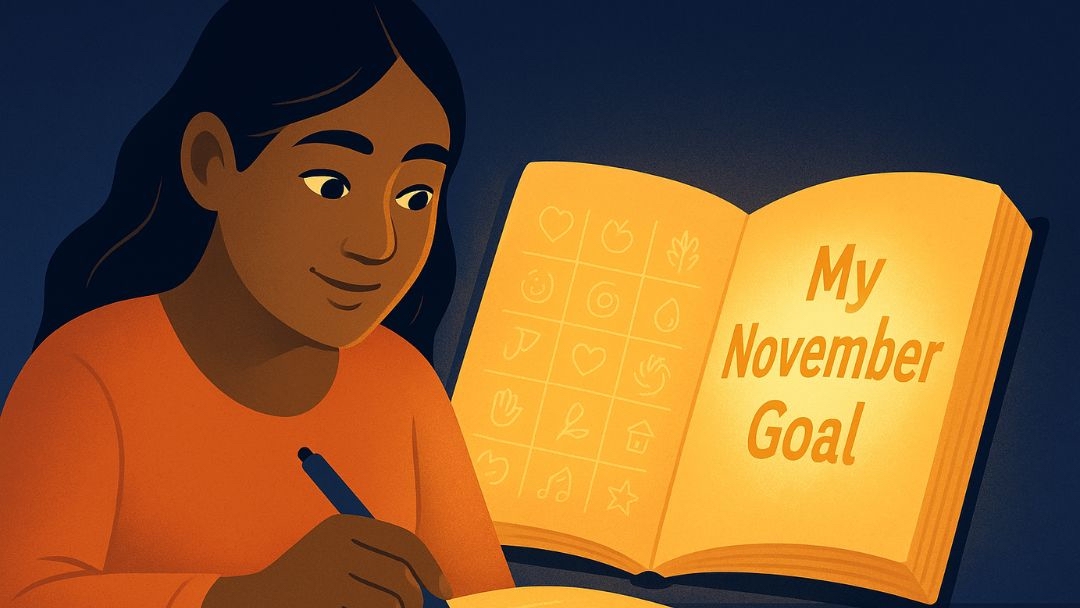
You’ve made it to the end of our Mental Health challenge, and that’s something worth celebrating. When you look back on your journey, you’ll see just how much simple, consistent actions really matter. Drinking one extra glass of water won’t transform your mental health overnight, and a two-minute funny clip won’t erase stress by itself. But done consistently, these small choices create a ripple effect that adds up to something much bigger.
Over the past 30 days, you’ve built momentum, proven to yourself that you can show up daily, and gained a sense of accomplishment. That’s the foundation of real change. Suddenly, making bigger lifestyle shifts to preserve your mental health doesn’t feel like a giant leap.
So here is your final challenge.
Take a moment to reflect on your month and determine which action had the most significant impact on you. Which ones felt so natural that repeating them won’t take much effort? As you move into November, set a simple mental health goal that you would like to carry forward.


Return to Blog
